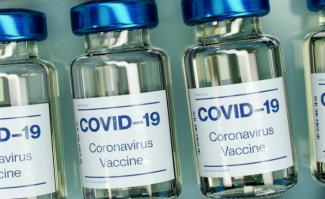
Covid Update and How It Relates to Investors
Following several consecutive announcements of vaccine candidate success in November 2020, markets began pricing in an end to the COVID-19 pandemic. Shortly after these vaccines were deemed effective, many were fast-tracked for approval by governments around the world, and vaccination programs began in earnest in December of last year. Now, in the second month of 2021, many investors may be wondering: how is the vaccine rollout progressing, and how close is the pandemic to being over?
At first glance, the vaccine rollout seems to be successful thus far: new case activity, hospitalization rates, test positivity rates and mortality rates have all fallen in the last two weeks. Some of this is undoubtedly tied to the distance between now and the major holiday season at the end of 2020 – where many, regardless of guidelines, wanted to spend time socializing with friends and family. However, this improvement has also coincided with continued vaccination.
At the same time, vaccination may be progressing more slowly than many would like. The U.S. leads the world in total vaccine doses administered (roughly 32 million doses, or slightly less than a third of the global total), but per-capita vaccination rates remain relatively low, at sub-10% of the U.S. population; the story is worse in other parts of the developed world, with Italy, a leading country in Europe based on vaccine rollout, having inoculated less than 4% of its population. The emerging world is not faring any better: China, India, Russia and Brazil all have vaccination rates below 2%.
Some of these issues can be attributed to a downshift in production and distribution of the Pfizer vaccine as it makes changes to its Belgium factory; and both Moderna and Pfizer, the main suppliers of COVID-19 vaccines to the U.S. government, are currently releasing too few vaccine doses per week to meet the stated goal of 100 million doses per provider by the end of March.
Still, hiccups aside, the vaccine does seem to be effective: Israel, an effective case study with almost 60% of its population vaccinated, has seen a dramatic decline in infections and illnesses in the 14 days after receiving the first dose.
Ultimately, while issues will be ironed out and vaccination will continue, investors should recognize that this pandemic will drag on both health and economic data for months to come, and that vaccine-related disappointment may be a source of equity market volatility. All told, it seems prudent to look forward to a post-COVID future while simultaneously protecting against the present, all through broad diversification.
The vaccine rollout is progressing more quickly in some countries than in others
Cumulative COVID-19 vaccination doses administered per 100 people, by country
Source: BBC, Centers for Disease Control and Prevention, Johns Hopkins CSSE, NPR, Our World in Data, J.P. Morgan Asset Management. Data may not equal total number of people vaccinated, if vaccines require multiple doses. Countries selected are based on data availability, population size and GDP. Data are as of February 2, 2021.
Provided by: Jack Manley – Global Market Strategist for JPMorgan Asset Management

